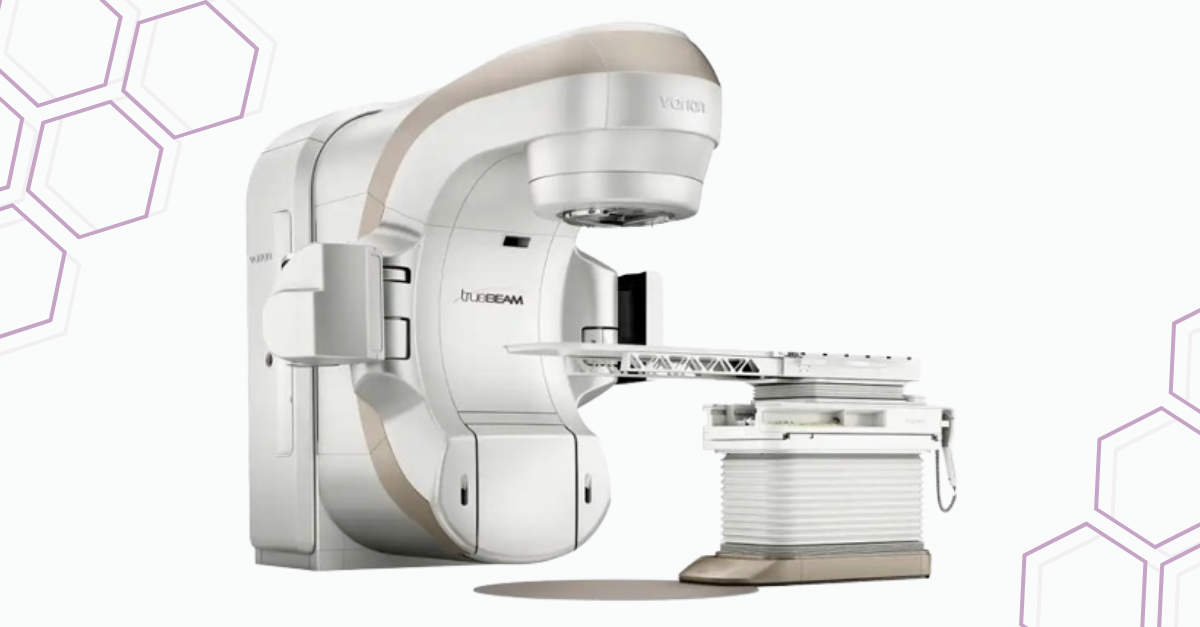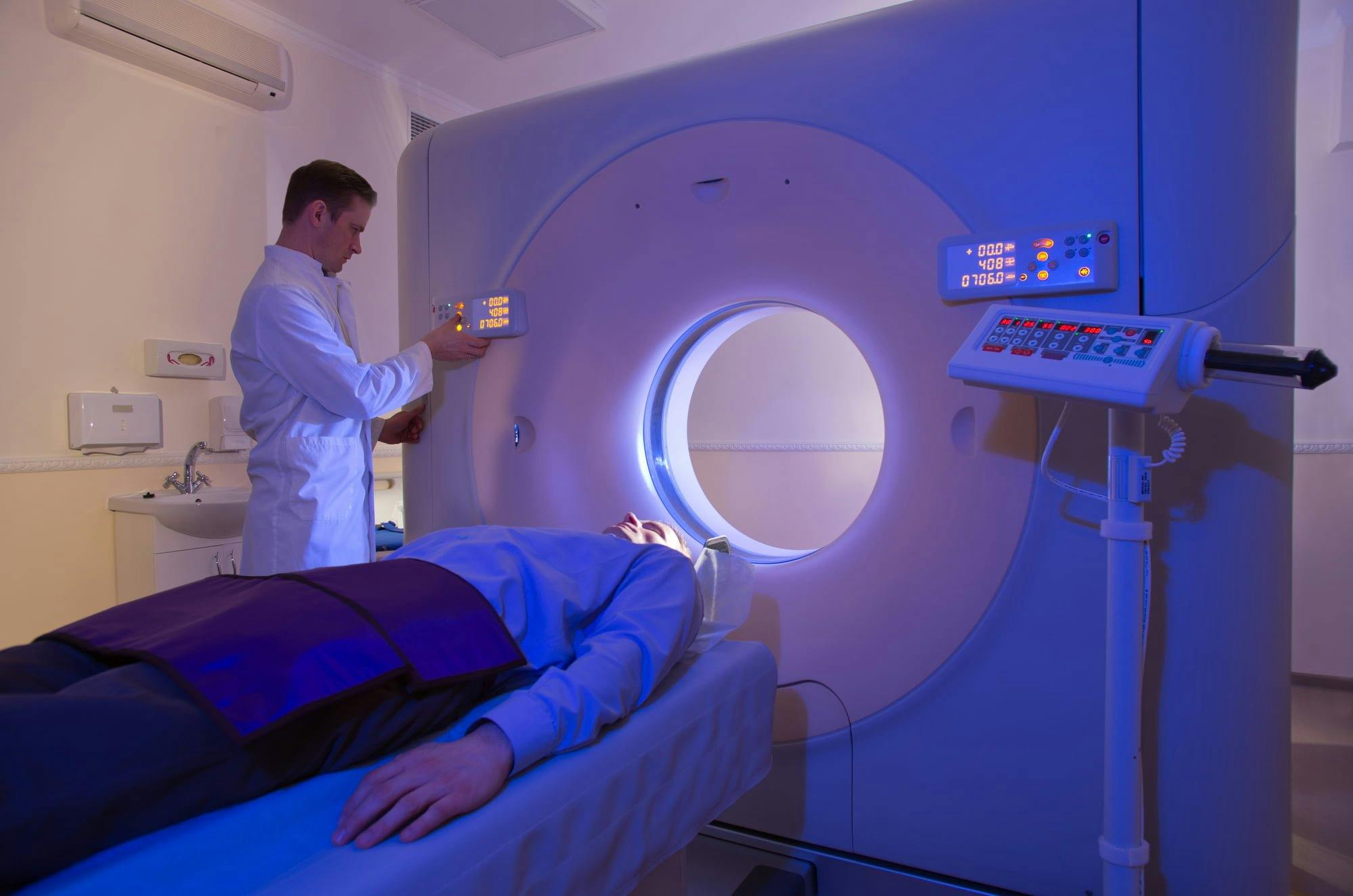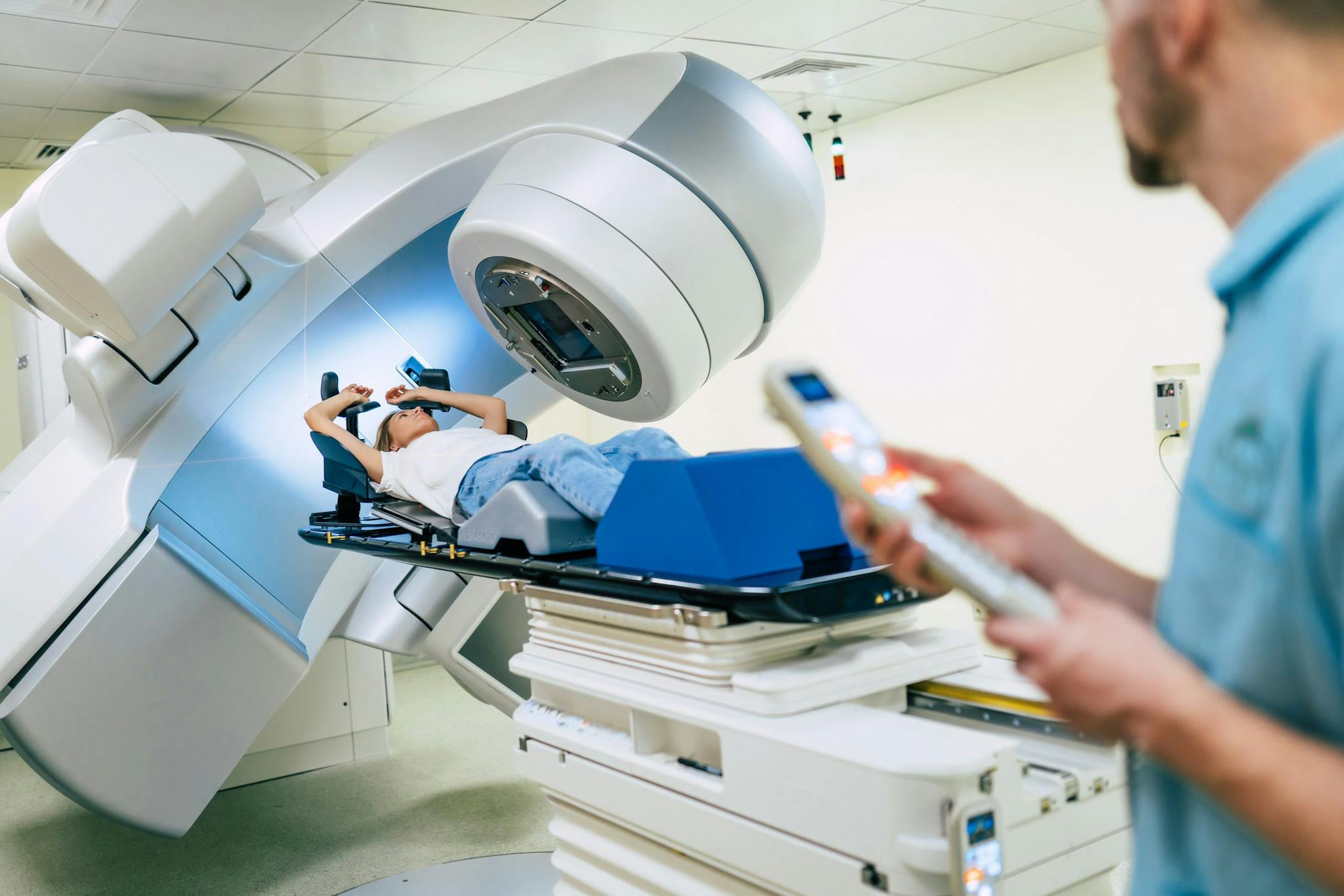
2023-12-14T12:12:37
How the Linear Accelerator is Transforming Radiation Therapy
- Radiation Oncology
October 15, 2019 | Imaging • Radiation Oncology • Radiology

According to the American Medical Association, one of the most technologically advanced fields of medicine is radiology. A radiologist is a medical doctor that diagnoses and treats diseases using radiation. Many unseen issues can be found and treated early when radiologists are involved. They can interpret the results of images, determine the cause of symptoms and provide options for treatment.
There are three different types of radiology: diagnostic, therapeutic and interventional.
Healthcare professionals use this type of radiology to see structures inside your body. These images can help your physician understand the cause of your symptoms, monitor how well your body is responding to treatments and screen for illnesses like cancer or heart disease.
Some of the most common diagnostic radiology tools include:
Interventional radiology is image-guided surgery. Interventional radiologists use diagnostic imaging tools (e.g., CT, ultrasound, MRI and fluoroscopy) to guide their procedures. Most interventional procedures avoid open and laparoscopic (keyhole) surgery and favor minimally invasive options. See this video from the British Society of Interventional Radiology for more information on interventional radiology.
Some advantages to this type of radiology include lower costs, greater comfort and faster recovery time. While it may not always be the best procedure for your condition, it is often more effective than traditional treatments.
Examples of interventional radiology procedures include:
Therapeutic radiology, often called radiation oncology or radiation therapy, is the treatment of cancer and other diseases using radiation. Radiation is used to both kill cancer cells and prevent them from coming back or multiplying. Therapeutic radiology can be used to treat cancer or ease cancer symptoms.
Using molds, headrests and other devices, radiation oncologists map out the treatment area for each patient. The team will often mark the exact area on the body or use special shields to ensure that the radiation procedure gets to the right place. Treatments may be used alone or coupled with surgery, chemotherapy or other treatment options.
Revere Health Imaging offers the most advanced imaging technology in Utah Valley with convenient locations and reduced-cost exams. We even offer our imaging services at night for your convenience. Contact us today at 801-812-4624 for an appointment!
“Radiology-Diagnostic” American Medical Association
https://www.ama-assn.org/specialty/radiology-diagnostic
“Therapeutic Radiology Overview” University of Rochester Medical Center
https://www.urmc.rochester.edu/encyclopedia/content.aspx?contenttypeid=85&contentid=P09513
“What is Interventional Radiology?” British Society of Interventional Radiology
https://www.bsir.org/patients/what-is-interventional-radiology/
“Imaging and radiology” Medline plus
https://medlineplus.gov/ency/article/007451.htm
“Radiation Therapy” Medline plus
https://medlineplus.gov/ency/article/001918.htm
WRITTEN BY:
The Live Better Team


2023-12-14T12:12:37

2022-10-13T09:59:33

2021-10-27T16:18:53

2019-06-06T10:36:51
This information is not intended to replace the advice of a medical professional. You should always consult your doctor before making decisions about your health.